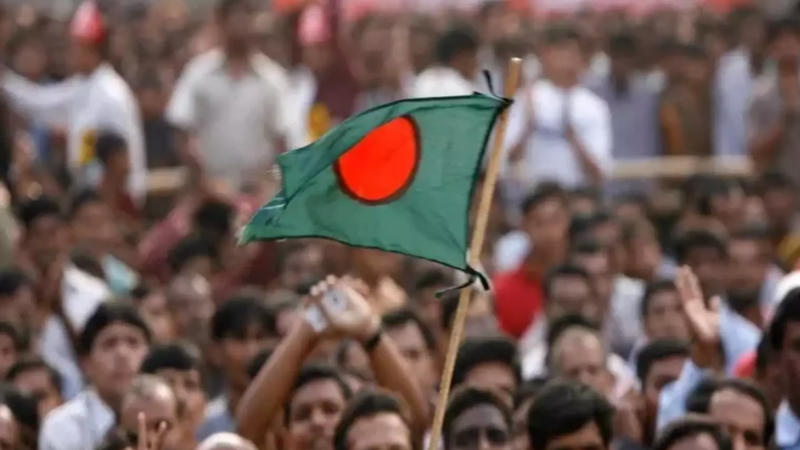Human Rights Watch Calls for Urgent Reforms for Bangladesh’s Return to Democracy Amid Attacks on Hindus- wna24

Human Rights Watch Calls for Urgent Reforms for Bangladesh’s Return to Democracy Amid Attacks on Hindus | Image:
X
Dhaka: Human Rights Watch (HRW) has called for urgent reforms in Bangladesh after the recent episode of mass protests and violence against minorities including Hindus in the country following the ouster of former Prime Minister Sheikh Hasina in August 2024.
In a newly released 50-page report titled “After the Monsoon Revolution: A Roadmap to Lasting Security Sector Reform in Bangladesh,” HRW emphasises the need to address systemic issues such as arbitrary arrests and political violence in Bangladesh.
The report also highlights the need for reforms centred on fostering political neutrality and strengthening institutional accountability in Bangladesh’s security forces.
While the interim government led by Muhammad Yunus is in action, the HRW wanted that this progress could be jeopardised without swift and structural reforms that ensure lasting democratic governance.
Asia director at Human Rights Watch, Elaine Pearson said, Nearly 1,000 Bangladeshis lost their lives fighting for democracy, ushering in a landmark opportunity to build a rights-respecting future in Bangladesh. This hard-won progress could all be lost if the interim government does not create swift and structural reforms that can withstand any repression by future governments.”
However, according to Human Rights Watch, Yunus, who was appointed by student activists after Hasina’s departure, has committed to implementing key reforms. The interim government has also pledged to end practices such as extrajudicial killings and enforced disappearances. Six commissions have been established to address reforms in critical areas, including the electoral system, justice system, public administration, police, anti-corruption measures, and the constitution.
Moreover, in February, Yunus is expected to begin implementing recommendations from these commissions.
This development comes as the Yunus government is pushing for a resolution at the United Nations Human Rights Council’s upcoming March session, advocating for ongoing monitoring and reporting on human rights conditions in Bangladesh. Human Rights Watch has called for donor nations to back reforms within the country’s security sector but cautioned that such support should only come with meaningful structural changes.
“If we don’t combat radicalization and anti-Semitism, the Holocaust won’t remain a past event we remember and learn from, but a reality we will have to face. Never again is now,” Elaine Pearson warned, pointing to the high stakes of inaction.
The organisation also raised alarms over the treatment of journalists under the current interim government. Data reveals that by November, authorities had filed murder charges against at least 140 journalists for their coverage of the Monsoon Revolution. In addition, more than 150 press accreditations were revoked, and sedition charges were levelled against 19 individuals accused of desecrating the national flag.
Additionally, violent attacks against minority communities, including Hindus, have reportedly gone unchecked, raising questions about police accountability. While Yunus has pledged to respect free speech, recent actions by the authorities contradict this commitment.
“The interim government should enlist UN support to cement structural reforms so that the abuses of the past do not become a blueprint for Bangladesh’s future,” said Elaine Pearson, Asia director at Human Rights Watch.
The stakes remain high as Bangladesh navigates a fragile transition. The interim government’s ability to enact lasting reforms could determine whether the nation achieves a sustainable democratic future or remains haunted by the legacy of its autocratic past.
